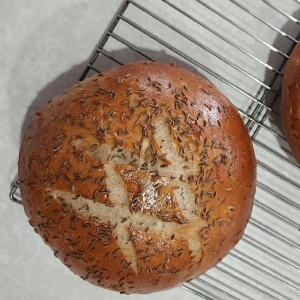Friday Takeaway: What is the difference between nice and kind?
| Published: 07-12-2019 3:40 PM |
“Nice” is an odd word. Ostensibly sweet, it often leaves a sour aftertaste. “Nice guys finish last.” “No more Mr. Nice Guy.” No offense to any midwestern transplants, but “Midwestern nice” is a term for passive aggression, the sort of false affect that reads as polite when, in fact, that person wants to punch you. Nice is actually not a very nice word when you get down to it. If the only thing someone can say about something is that it’s “nice,” you might well wonder what’s not being said.
A few years ago, in the wake of the 2016 election, a Facebook post of mine went viral. I had seen one too many comments about being civil and getting along. How could anyone make nice with an incoming administration that was openly, unrepentantly racist? I typed “Nice people made the best Nazis” in a fury, invoking my own family’s history. The quote was shared first by my friends, then by people I didn’t know; a couple of days later, someone had generated it into a meme that was shared thousands upon thousands of times. Over the past several years, the current administration has only validated the fury — and fear, really — that many of us felt that November morning, and so the quote continues to be shared. It’s likely to be the most well-known thing I ever write.
But I do write other things, among them a children’s book that came out last month: “Be Kind: You Can Make the World a Happier Place” (Storey Publishing.) If you’ll forgive me a moment of self-promotion, the book is a collection of concrete actions children can say and do to help improve the world around them. It is not an accident that the title isn’t Be Nice. Most of the actions in the book are nice — many involve learning to be polite, welcoming, friendly, thoughtful. But they are not only nice.
Nice is a way of presenting. It is not a call to action. We can be nice by simply removing ourselves from an uncomfortable moment, one where we might have to confront a problematic comment or action. In Nazi Germany — and many, many other times and places throughout human history — one could be nice by simply deciding not to pay attention to what was happening, not to talk about it, to focus on happier things. Speaking out can make others uncomfortable, after all, and that doesn’t feel nice. On a global scale, pretending we don’t see the beginning stages of fascism or acting like we don’t notice apocalyptic changes in the climate can feel like the polite and nice thing to do. But the end result is nice for no one. It would be kinder for all to call these things out, early and often, in no uncertain terms.
This essay began with a question, and it’s not entirely rhetorical. In my personal life, I have at times avoided confrontation until the boiling point is reached and friendships and relationships end. Sometimes it is still, all these years in, a challenge to land on exactly where the line is between a polite response and an honest answer. It’s a little awkward to admit that the author of “Be Kind” hasn’t nailed this distinction, but I know I’m not alone. Both in the public square and in our intimate relationships, speaking our truth is a skill that many of us need to hone.
One thing I can say is that I’m learning — the hard way, at times — how to recognize the difference between niceness and kindness, even when kindness is more difficult. I can also say with growing confidence that being kind includes being forgiving, especially to oneself. The book “Be Kind” may be in print, but I myself am still a work in progress, rife with errors. Every day, I try, and when I stumble, I can only acknowledge it and keep moving forward.
Have a nice day.
Naomi Shulman’s work has appeared in many publications including The New York Times, The Washington Post and Yankee Magazine, as well as on NEPR and WBUR. Follow her on Twitter:
@naomishulman.

 Locking up carbon for good: Easthampton inventor’s CO2 removal system turns biomass into biochar
Locking up carbon for good: Easthampton inventor’s CO2 removal system turns biomass into biochar Northampton man will go to trial on first-degree murder charge after plea agreement talks break down
Northampton man will go to trial on first-degree murder charge after plea agreement talks break down  Police report details grisly crime scene in Greenfield
Police report details grisly crime scene in Greenfield Area property deed transfers, April 25
Area property deed transfers, April 25 Advancing water treatment: UMass startup Elateq Inc. wins state grant to deploy new technology
Advancing water treatment: UMass startup Elateq Inc. wins state grant to deploy new technology Super defers Amherst middle school principal pick to successor; one finalist says decision is retaliation for lawsuit
Super defers Amherst middle school principal pick to successor; one finalist says decision is retaliation for lawsuit Valley Bounty: Grass-fed animals that feed the grass: Gwydyr Farm in Southampton focuses on ‘restoring the connection between land, food and people’
Valley Bounty: Grass-fed animals that feed the grass: Gwydyr Farm in Southampton focuses on ‘restoring the connection between land, food and people’ Weekly Food Photo Contest: This week’s winner: Mary Chicoine of Easthampton
Weekly Food Photo Contest: This week’s winner: Mary Chicoine of Easthampton  Speaking of Nature: A romantic evening for two birders — To hear the wonderful sounds of the Saw-whet Owl one must go outside at night
Speaking of Nature: A romantic evening for two birders — To hear the wonderful sounds of the Saw-whet Owl one must go outside at night Speaking of Nature: Where have all the birds gone?: They’re there, and here’s a handy tool to keep track of their appearances
Speaking of Nature: Where have all the birds gone?: They’re there, and here’s a handy tool to keep track of their appearances
